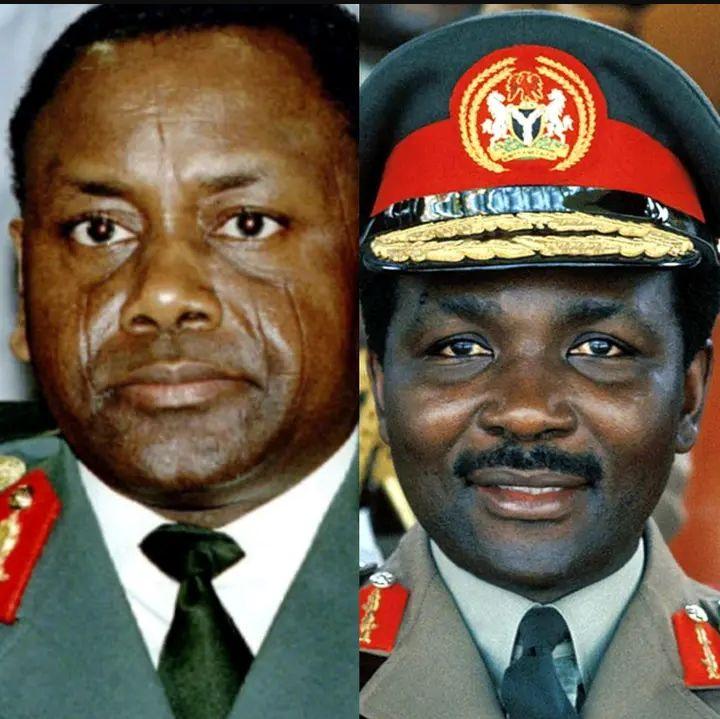“No Bloodshed!” — Historian Reveals How Gowon’s Final Words During 1975 Coup Showed His True Love for Peace
In a recent interview on the Edmund Obilo Show, historian and author Adebayo Adeolu, who wrote “Sani Abacha: Nigeria’s Most Powerful Defence Minister and Head of State,” revealed a powerful and often-overlooked detail about General Yakubu Gowon’s fall from power in 1975.
Adeolu disclosed that when news of the coup reached Gowon, the then Head of State ordered his aides and security personnel not to resist or spill any blood.
“When Gowon was going to be overthrown, he said, ‘make sure nobody’s killed, we have seen enough of it,’” Adeolu quoted.
According to the historian, Gowon’s reaction reflected his deep weariness with Nigeria’s cycles of violence — particularly after the Nigerian Civil War (1967–1970), which he had led. Instead of clinging to power, Gowon chose peace over conflict, showing a level of restraint rare among military rulers of his time.
“That single moment showed Gowon’s moral strength and his genuine desire for a peaceful Nigeria,” Adeolu said, describing the act as one of the most humane moments in Nigeria’s military history.
Gowon, who was attending the Organisation of African Unity (OAU) Summit in Uganda when he was ousted, quietly accepted his removal and later devoted his life to reconciliation and peacebuilding — cementing his reputation as a statesman of grace and humility.
In a recent interview on the Edmund Obilo Show, historian and author Adebayo Adeolu, who wrote “Sani Abacha: Nigeria’s Most Powerful Defence Minister and Head of State,” revealed a powerful and often-overlooked detail about General Yakubu Gowon’s fall from power in 1975.
Adeolu disclosed that when news of the coup reached Gowon, the then Head of State ordered his aides and security personnel not to resist or spill any blood.
“When Gowon was going to be overthrown, he said, ‘make sure nobody’s killed, we have seen enough of it,’” Adeolu quoted.
According to the historian, Gowon’s reaction reflected his deep weariness with Nigeria’s cycles of violence — particularly after the Nigerian Civil War (1967–1970), which he had led. Instead of clinging to power, Gowon chose peace over conflict, showing a level of restraint rare among military rulers of his time.
“That single moment showed Gowon’s moral strength and his genuine desire for a peaceful Nigeria,” Adeolu said, describing the act as one of the most humane moments in Nigeria’s military history.
Gowon, who was attending the Organisation of African Unity (OAU) Summit in Uganda when he was ousted, quietly accepted his removal and later devoted his life to reconciliation and peacebuilding — cementing his reputation as a statesman of grace and humility.
“No Bloodshed!” — Historian Reveals How Gowon’s Final Words During 1975 Coup Showed His True Love for Peace
In a recent interview on the Edmund Obilo Show, historian and author Adebayo Adeolu, who wrote “Sani Abacha: Nigeria’s Most Powerful Defence Minister and Head of State,” revealed a powerful and often-overlooked detail about General Yakubu Gowon’s fall from power in 1975.
Adeolu disclosed that when news of the coup reached Gowon, the then Head of State ordered his aides and security personnel not to resist or spill any blood.
“When Gowon was going to be overthrown, he said, ‘make sure nobody’s killed, we have seen enough of it,’” Adeolu quoted.
According to the historian, Gowon’s reaction reflected his deep weariness with Nigeria’s cycles of violence — particularly after the Nigerian Civil War (1967–1970), which he had led. Instead of clinging to power, Gowon chose peace over conflict, showing a level of restraint rare among military rulers of his time.
“That single moment showed Gowon’s moral strength and his genuine desire for a peaceful Nigeria,” Adeolu said, describing the act as one of the most humane moments in Nigeria’s military history.
Gowon, who was attending the Organisation of African Unity (OAU) Summit in Uganda when he was ousted, quietly accepted his removal and later devoted his life to reconciliation and peacebuilding — cementing his reputation as a statesman of grace and humility.
0 Commentarii
·0 Distribuiri
·274 Views




